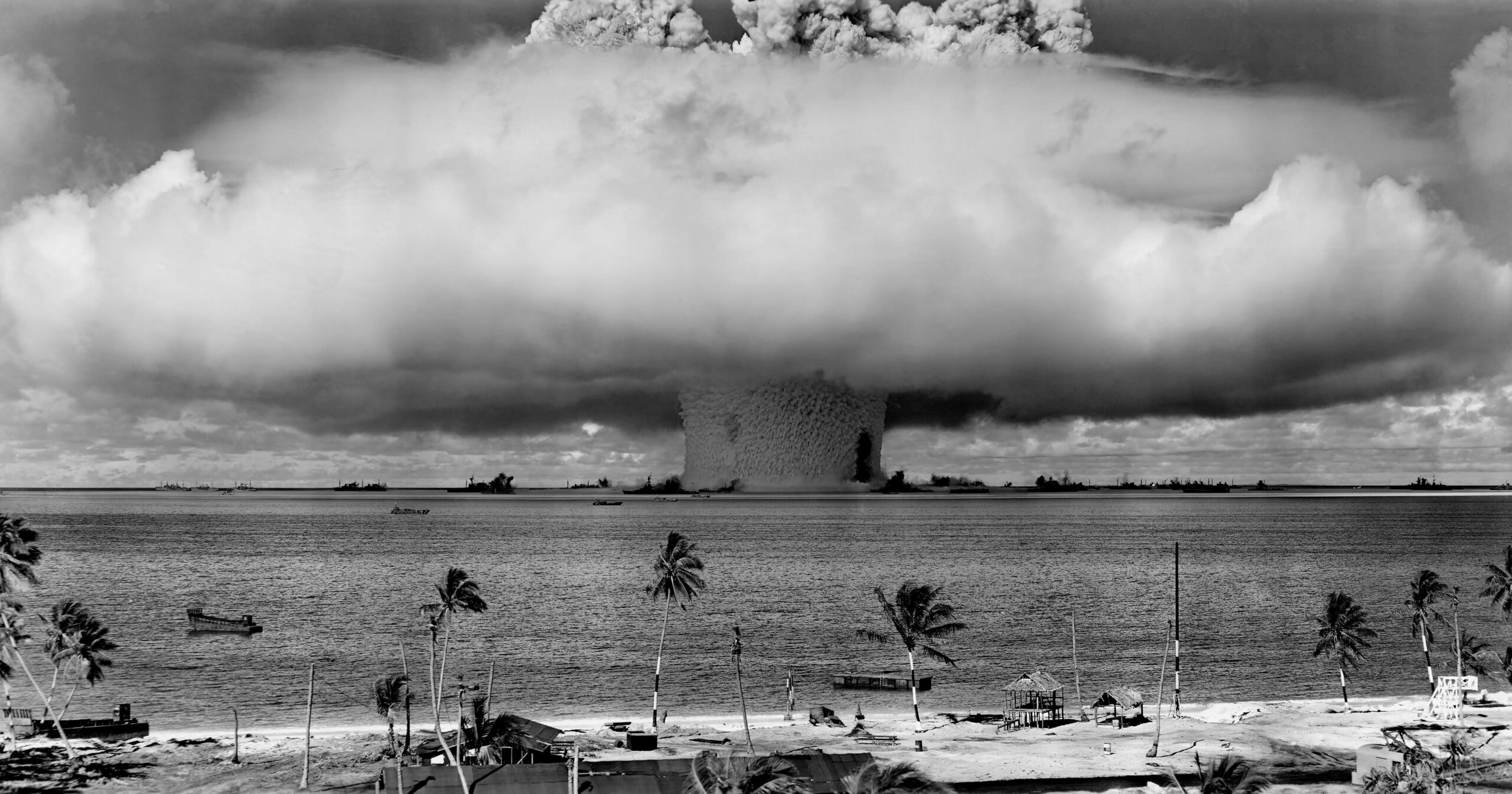Open to Emerging Voices Network (EVN) members 2024/2025 cycle.
This year’s policy cycle on ‘Nuclear Harm Reduction’ is an opportunity for EVN members to dive further into the subject area of the humanitarian impacts (HI) of nuclear weapons, and to explore how harms created by nuclear weapons – on people and the planet – can be prevented, reduced, and responded to.
Throughout this cycle, members will contribute to one of five working groups focused on a specific subject area, listed below, to further discussion, thinking, and action on nuclear harm reduction. The working group themes span the lifecycle of a nuclear weapon and explore the broad range of ways in which nuclear weapons can impact humanity and the environment and how these risks could be reduced. The different themes intend to allow EVN members to connect HI and nuclear harm reduction with their professional interests and demonstrate the importance of interconnectivity with other subject areas in the nuclear field. Particularly when working to address existential threats, such as the risks and harms posed by nuclear weapons.
The working group titles are:
1. Solving the Radiological Waste Disposal Riddle
Civil and military nuclear programmes produce radioactive waste, forms of which can have extremely long half-lives and remain unsafe to organic life for hundreds of thousands of years or more. While slow progress is being made towards building deep geological repositories to store radioactive waste into the long-term future, practical and cost-related challenges abound, and important questions remain about how to effectively protect future generations of human and non-human life from harm. In the meantime, demand for nuclear technologies remains high: nuclear energy is playing an important role in the clean energy transition, while nuclear weapons remain a key component of certain states’ defence policies. Examining the latest research on this issue, this working group will produce a white paper outlining a multi-faceted approach to radioactive waste management, including technological solutions, governance structures, and ethical frameworks for long-term stewardship, with the aim of informing national and international policy decisions.
2. Offsetting Harms Relating to the Front End of the Nuclear Fuel Cycle
As nations grapple with energy security and climate change, nuclear power remains a contentious solution. But what of the often-overlooked impacts at the beginning of the nuclear fuel cycle? This working group delves into the environmental and social costs of uranium mining, milling, and enrichment. From indigenous land rights to groundwater contamination, we’ll explore innovative policies to mitigate these harms and ensure a more equitable and sustainable nuclear future. This working group will develop a comprehensive framework for assessing and mitigating the socio-environmental impacts of uranium extraction, aiming to influence industry practices and inform international regulations.
3. Integrating Science on the Climatic Impacts of Nuclear Weapons Use into Contemporary Deterrence Thinking The spectre of climatic and other earth systems impacts of nuclear weapons use (sometimes colloquially referred to as ‘nuclear winter’) has long haunted strategic thinking. But how well do modern deterrence policies account for the latest climate science? This group will bridge the gap between climatologists and nuclear strategists, examining the evidence on how even a “limited” nuclear exchange could, in certain circumstances, trigger global environmental catastrophe, and its implications for modern strategic thought. This working group will produce a policy brief that integrates cutting-edge climate models into present-day nuclear planning, aiming to reshape deterrence strategies and strengthen global efforts for nuclear arms control and disarmament.
4. Examining the Displacement of Peoples due to Nuclear Weapons Deployments and Testing
Behind the geopolitics of nuclear arsenals lie hidden human stories of displacement and environmental injustice. From the Marshall Islands to Nevada, communities have been uprooted in the name of national security. This working group will map these historical and ongoing displacements, drawing attention to the inherent linkage between displacement and the deployments of nuclear weapons and their supporting infrastructure, and crafting policy recommendations to address this often-neglected aspect of the nuclear age. This working group will create a comprehensive report documenting displaced communities and propose a set of international guidelines for resettlement, compensation, and ongoing support for affected populations.
5. Assessing Harms Relating to Current and Historic Service People Involved in Nuclear Missions
The human cost of maintaining nuclear deterrence extends far beyond potential targets. This group will investigate the physical and psychological toll on military personnel tasked with nuclear missions, past and present. From “Atomic Veterans” exposed to test radiation to modern missile crews (as well as their families and dependents) facing unique stressors, we’ll examine health impacts, mental health challenges, and ethical dilemmas. The goal:
comprehensive policies to better offset the harms against those who’ve borne the hidden burden of the nuclear arsenal. This working group will develop a set of policy recommendations for improved health monitoring, mental health support, and compensation programs for service members involved in nuclear missions, past and present.
More information on the Nuclear Harm Reduction policy cycle and application process is here.

